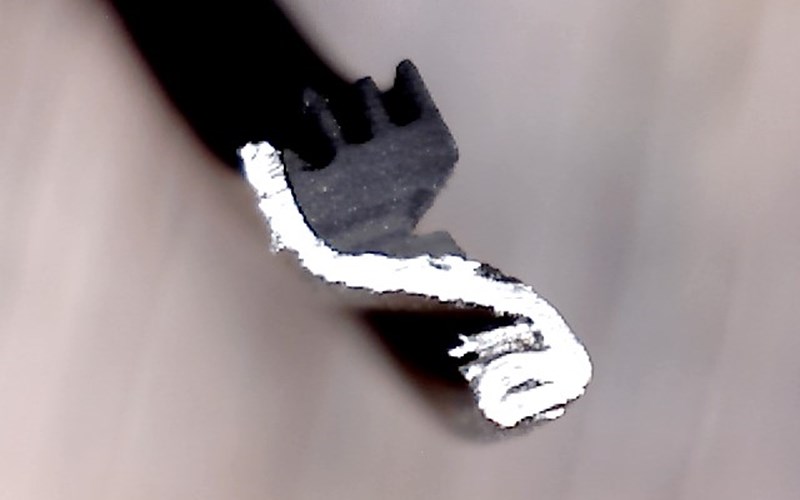CONTACT SEALS
By providing direct contact with the inner ring, contact seals make it extremely difficult for contaminants like dust, dirt, and moisture to reach the inner parts of your bearing. Contact seals also do an excellent job of sealing lubricants inside your bearing.
The trade-off for premium sealing performance is that contact with the inner bearing produces both friction and heat. Added friction and heat can damage both the bearing and the seal and lead to premature part failure. Addition friction can also reduce the maximum speed of the bearing, so you’ll need to weigh your need for top-end sealing performance with the potential for wear and tear and loss of top speed.
NON-CONTACT SEALS
While non-contact bearings do not touch the inner ring, they do feature a thin lip that rests adjacent to it. This design provides protection against contaminants and leakage, but not to the same degree as a contact seal. However, the lack of contact with the inner bearing produces less friction, which can prevent overheating and other potential issues.
LABYRINTH SEALS
The complexity of a labyrinth seal allows it to provide excellent sealing capabilities. In addition, it can fend off contaminants and prevent leakage without contact the inner ring. As such, labyrinth seals offer the sealing capabilities of a contact seal while limiting added friction like a non-contact seal.
While labyrinth seals offer the best of both contact and non-contact seals, there are some potential downsides. The first is that the complexity of the design may require more physical space than other seals, which can be difficult to manage depending on your application. The second is that this same complexity can cause labyrinth seals to be more expensive than other sealing options. As such you’ll need to weigh the added benefits of these parts to determine if they make long-term sense for your situation.
IDENTIFY THE RIGHT SEALS FOR YOUR BEARINGS
While seal selection plays a key role in the success of your bearings, you don’t have to make that decision alone. At Ritbearing, our experts can work with you to determine which bearings and bearing seals offer the best, most cost-effective solution for your application, environment, and end product.
Ready to identify the perfect parts for your applications? Contact us about your bearing needs today.
